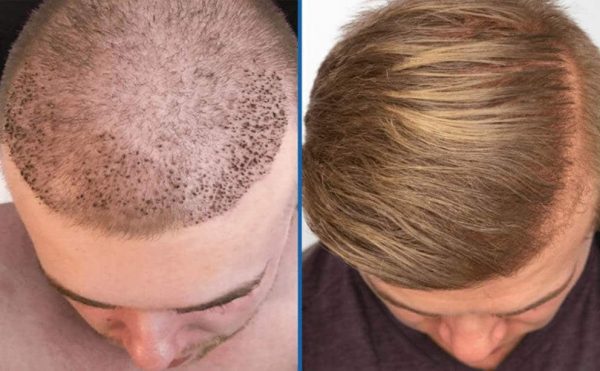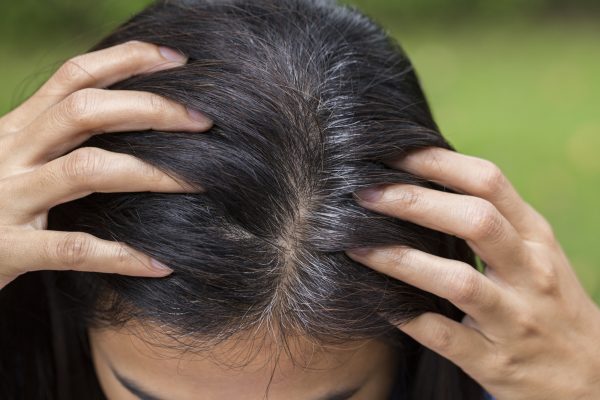Whenever you go over their nutritional supplement choices to see if there are any new products. You will observe an increase in the number of products that provide specific health solutions, particularly for hair development and thickness.
The majority of the items include numerous components. One of these is usually invariably biotin, a water-soluble B vitamin. Similarly, many shampoos and conditioners that claim to make hair thicker and fuller typically contain this B vitamin.
The recurring theme here is that biotin, whether taken orally or used topically, is said to promote hair growth.
This article discusses the relationship between biotin and hair health, as well as whether the vitamin is helpful and safe for hair growth and the prevention of hair loss.
What science has discovered regarding biotin and hair growth?
Biotin provides several health advantages. Its principal function is to aid in the conversion of food into energy. It is also required by your body to manufacture keratin, which is a kind of protein found in hair, skin, and nails.
Biotin is found in many foods, therefore shortage is uncommon in healthy persons who consume a well-balanced diet.
Although uncommon, biotin deficiency can result in skin rashes, brittle nails, hair thinning, and loss. This is due to the vitamin’s function in the formation of keratin.
As a result, biotin pills and biotin-added hair products are frequently marketed to stimulate healthy hair development or fuller, voluminous hair.
Despite these claims, there is minimal proof that supplementing with biotin or lathering it into your hair increases hair growth in persons who are not deficient.
In a previous trial from 2012, women with self-perceived thinning hair were randomly assigned to either a multi-ingredient hair growth supplement including biotin or a placebo for 6 months.
After the treatment period, those who got the hair growth supplement reported an increase in total hair volume, scalp covering, and thickness. Meanwhile, there were no significant differences in the placebo group.
However, because the hair development supplement contains many substances, including zinc and iron, which are also required for hair growth, the study’s findings cannot be attributed to biotin alone.
Furthermore, because the trial was small, it’s likely that the subjects were low in one or more of the nutrients in the supplement that impact hair health. During the research period, any such shortage may have been addressed, resulting in hair growth.
Researchers discovered that children who had greater hair growth or quality after taking biotin supplements all had an underlying illness that produced a biotin shortage.
Aside from these trials, there is no compelling evidence to support the use of biotin supplements or biotin-enriched hair products to enhance hair growth.
Does biotin aid in the prevention of hair loss?
Although the evidence for biotin alone for hair development is weak and restricted, the evidence for preventing hair loss is slightly greater.
Nonetheless, biotin tablets are only likely to prevent hair loss and increase hair growth in persons who are deficient in biotin.
In one research, biotin deficiency was discovered in 38% of women who complained of hair loss. 11% of the subjects had a history of deficient risk factors, such as inflammatory bowel disease (IBD) or the use of specific drugs, such as antibiotics.
While this study did not look at the impact of biotin pills or biotin-added hair products on preventing hair loss, it did show a relationship between hair loss and low biotin levels.
Other reasons for hair loss include:
- Androgenetic alopecia, often known as female pattern baldness,
- Fast weight loss,
- Nutritional deficits such as iron, zinc, or protein, and thyroid disease
Because of the many variables that contribute to hair loss and thinning, supplementing with biotin without first diagnosing the cause might hinder or delay proper therapy in cases when a biotin deficiency isn’t to blame.
Even in the presence of a biotin shortage, biotin supplementation may not prevent hair loss.
In one study, for example, researchers recommended a biotin supplement to 22 individuals with low biotin levels for hair loss after gastric sleeve surgery.
After three months, five patients reported a considerable decrease in hair loss, fourteen reported a little benefit, and three reported no effect, indicating that other factors may be at work when it comes to hair loss and prevention.
Biotin requirements and biotin-rich diets
Normally, the National Academies of Sciences, Engineering, and Medicine’s Food and Nutrition Board establish a recommended dietary allowance (RDA) for each nutrient.
When there is insufficient data to create an RDA for a nutrient, such as a biotin, the board instead establishes an appropriate consumption (AI). This is the nutritional level thought to be sufficient for the majority of individuals.
The AI for biotin is 30 mcg for adults and 35 mcg for breastfed mothers.
A balanced diet will help you easily fulfill these goals. In fact, it is estimated that adults in the United States consume 35-70 mcg of biotin every day.
Eggs are a rich source of biotin but eat them cooked to get the most of the vitamin. Avidin, a kind of sugar protein found in raw egg whites, firmly binds to biotin, preventing your body from absorbing it.
Cooking eliminates avidin, enabling biotin to be absorbed. As a result, it’s advised to avoid raw eggs for your own safety and nourishment.
The FDA does not require food producers to mention biotin on their labels unless they include it in their goods.
Biotin can be produced by bacteria in your intestines in addition to food. However, the significance of gut bacteria in human biotin status is uncertain, owing to the diversity of the gut microbiota and the variables that regulate its composition.
Who is at risk of a deficiency?
Biotin supplements are normally unneeded unless you are deficient in biotin or have a risk factor that raises your chances of insufficiency.
Those who have the following conditions are more likely to have a biotin deficiency:
- a lack of biotinidase (BTD).
- A hereditary disease that prevents the body from reusing and recycling biotin. This disease is checked for in newborns in the United States and many other countries.
- Chronic alcohol consumption.
- Long-term alcohol consumption is associated with considerable declines in biotin levels because alcohol hinders biotin absorption.
- Malnutrition.
- Low nutritional levels, particularly biotin, can result from insufficient dietary and nutrient consumption.
- Bowel inflammation diseases (IBDs).
- Crohn’s disease and ulcerative colitis can reduce biotin synthesis by gut flora.
Those who are pregnant or nursing might acquire low biotin levels despite using the vitamin on a regular basis. This might be due to excessive vitamin usage, poor absorption, or both.
People who use certain drugs, such as antiepileptics and retinoids, are at risk of biotin deficiency.
Antiepileptic medications are often used to treat seizures, nerve pain, and bipolar illness. Retinoids are a kind of vitamin A-derived substance that is often used to treat acne, psoriasis, and other dermatological diseases.
Biotin pills or biotin-added hair products are unlikely to be beneficial outside of these demographics.
Risks and precautions
Because it is water-soluble, biotin taken as a dietary supplement is quite safe and unlikely to have harmful consequences. An overdose of biotin, on the other hand, might induce sleeplessness, excessive thirst, and urination.
Taking them can also raise your blood biotin levels, which can interfere with some lab tests, such as those used to monitor thyroid hormones, vitamin D, and heart health.
Because of its capacity to connect with certain proteins and identify certain health issues, biotin is used in many scientific procedures.
As a result, always inform your doctor of any biotin-containing supplements you are taking or intend to use. Some prenatal and multivitamin supplements may be included.
It’s also worth mentioning that many antiepileptic medications, such as carbamazepine, primidone, phenytoin, and phenobarbital, might reduce biotin levels.
If you take any of these, see your doctor or a nutritionist to verify you’re receiving enough biotin, whether through food, supplementation, or a mix of the two.
In conclusion
There is no compelling evidence to support the use of biotin for hair development or to prevent hair loss in those who do not have a deficit.
Because biotin deficit is occasionally related to hair loss and poor hair development, addressing a deficiency can help restore hair growth in some people.
A lack of certain minerals, such as iron and zinc, can also contribute to hair loss and thinning.
Biotin is abundant in most people’s diets. Low levels can, however, be caused by certain illnesses, lifestyle practices, and drugs.
If you intend to take a biotin supplement, notify your doctor before having any blood tests done, as the vitamin might interfere with some lab test results.


